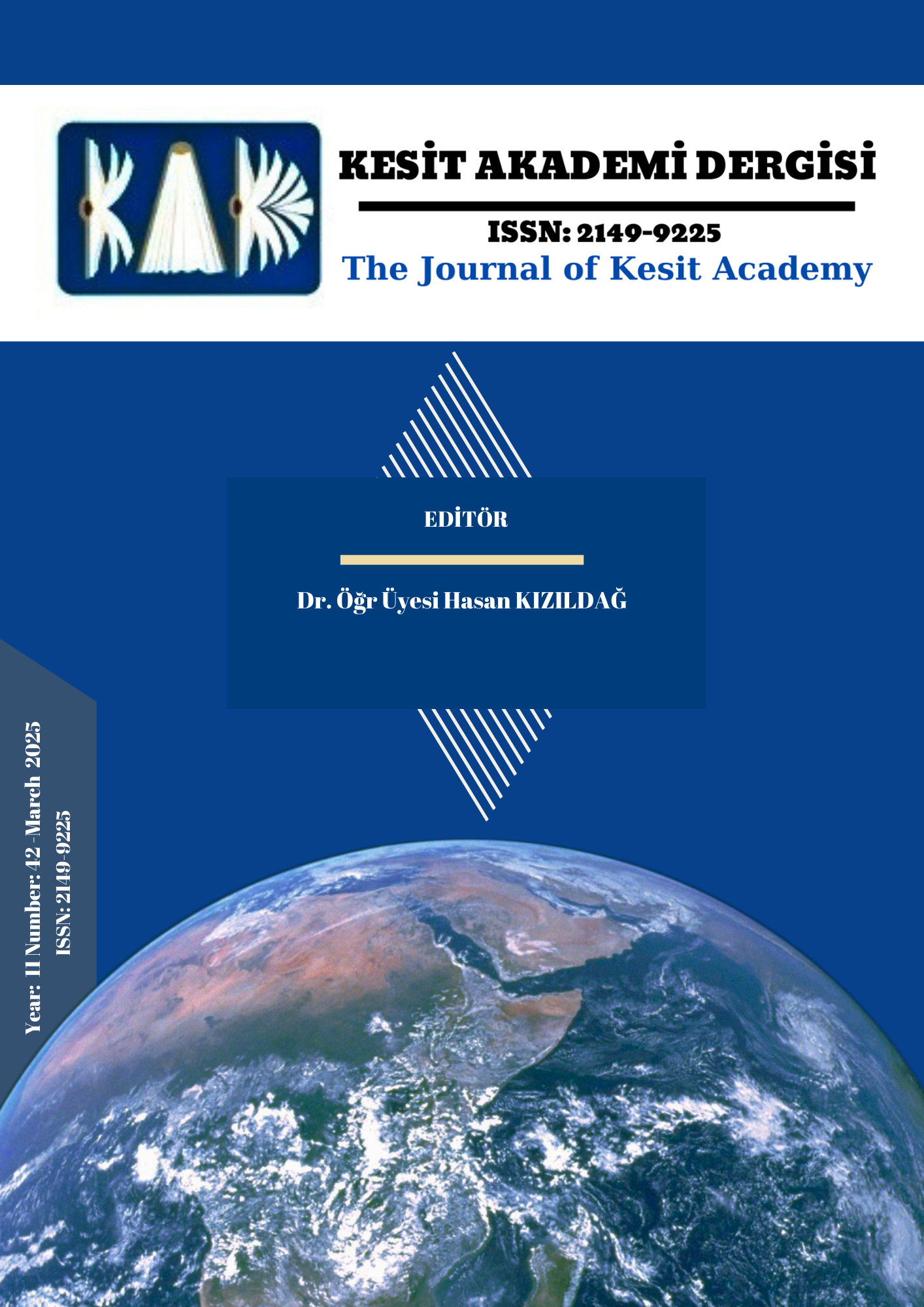Author :
Abstract
Araştırmanın amacı; Sosyal Bilgiler öğretmen adaylarının değerler eğitimine yönelik tutumlarını belirlemektir. Nicel bir çalışma olan bu araştırmada tarama modeli kullanılmıştır. Öğretmen adaylarının tutum düzeylerini belirlemek amacıyla Değer Eğitimine Yönelik Tutum Ölçeği kullanılmıştır. Ölçek; 2022-2023 eğitim döneminde 1.,2.,3. ve 4. sınıf Sosyal Bilgiler öğretmenliğinde eğitim gören 1029 adaya uygulanmıştır. Veriler SPSS programı aracılığıyla analiz edilmiştir. Öğretmen adaylarının değerler eğitimine yönelik tutum düzeylerini belirlemek amacıyla yapılan betimsel analizde S1 (değer eğitimine olan inanç) alt boyutunda öğretmen adaylarının oldukça yüksek tutuma sahip olduğu; S2 (değer eğitimini içselleştirme), S3 (değer eğitimine yönelik olumsuz inanç) ve ölçeğin bütününde ise tutumlarının yüksek olduğu belirlenmiştir. Araştırma kapsamında adayların değerler eğitimine yönelik tutum düzeylerinin üniversite, cinsiyet, sınıf düzeyi, akademik not ortalamaları, ailenin eğitim durumu, ailenin ekonomik durumu, öğrencilerin kulüp üyeliği, STK’lara üyelik, yaşanılan bölgeye göre anlamlı farklılıkların olup olmadığını belirlemekte amaçlanmıştır. Öğretmen adaylarının değerler eğitimine yönelik tutum düzeylerinin; üniversite, sınıf düzeyi, akademik not ortalaması, sivil toplum kuruluşlarına üyelik, kulüp üyeliği, yaşanılan bölge değişkenlerinde öğretmen adayları arasında manidar farklılık olduğu görülmüştür. Cinsiyet, anne-baba eğitim düzeyi, ekonomik durum değişkenleri açısından manidar farklılık tespit edilmemiştir.
Keywords
Abstract
This study aims to ascertain the attitudes of pre-service social studies teachers towards values education. The present investigation constitutes a quantitative survey. Attitude Scale Towards Value Education was utilised to ascertain the attitude levels of pre-service teachers. The scale was applied to 1029 candidates studying in the first, second, third and fourth grade Social Studies teaching in the 2022-2023 academic year. The collected data were then analysed using SPSS software. The descriptive analysis conducted to determine the level of attitudes of prospective teachers towards values education determined that prospective teachers had fairly high attitudes across the subscales S1 (belief in values education), S2 (internalisation of values education), S3 (negative belief in values education) and the whole scale. The objective of the present study was to ascertain whether there exist substantial disparities in the attitudes of pre-service teachers towards values education according to university, gender, grade level, academic grade point averages, educational status of the family, economic status of the family, students' club membership, membership to NGOs, and region of residence. The findings revealed a statistically significant variation in the attitudes of pre-service teachers towards values education, contingent on variables such as university, grade level, academic grade point average, membership to non-governmental organisations, club membership, region of residence.No statistically significant variation was observed in terms of gender, parents' education level and economic status variables.





